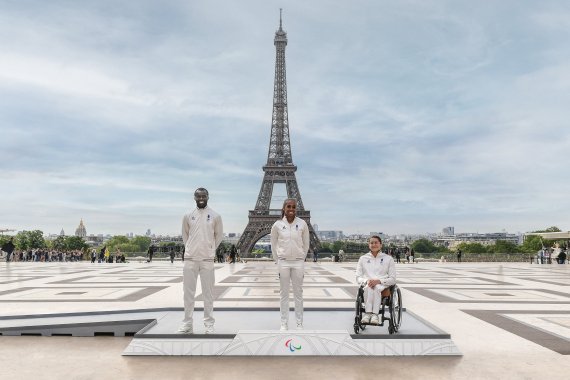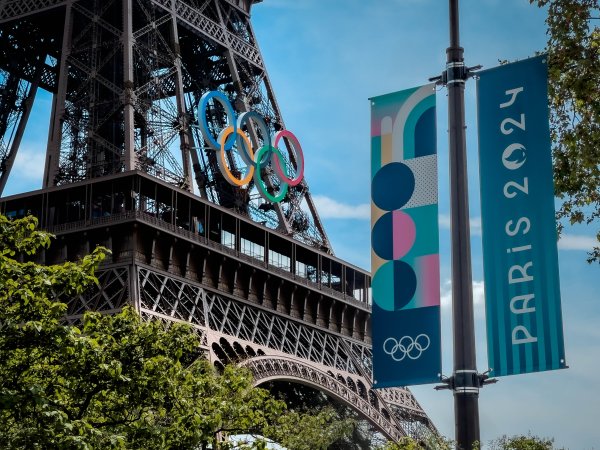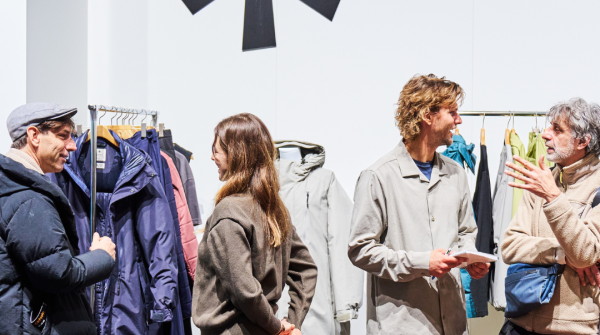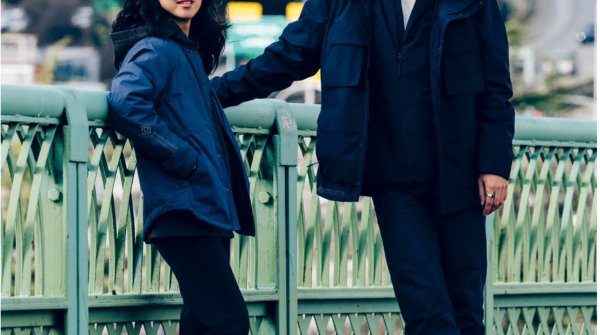Alongside TV contracts, sponsors and partners are the main sources of income for the International Olympic Committee (IOC): An estimated three billion dollars are said to have been collected in the cycle with the 2022 Winter Games in Beijing and the 2024 Summer Games. No wonder: as the 16-day highlight of the sports season, the Olympic Games still reach billions of people - on TV screens, but now also primarily as trending content on social media. The IOC is also constantly trying to tap into new sources of funding - for example, there will be Olympic eSport Games in Saudi Arabia from 2025. The program of the classic Olympic Games is also being tailored to young target groups: Breaking (breakdancing) will celebrate its premiere in Paris.
"The official budget for Paris is 4.4 billion euros, 96 percent of which is privately financed," says German IOC member Michael Mronz. According to the official budget plan, Olympic host Paris will receive 1.22 billion euros from the IOC. 750 million of this comes from TV rights, 470 million from partnerships with top sponsors. Other partners, primarily from France itself, will contribute as much as 1.226 billion euros. In addition, there is an estimated 1.1 billion euros from ticketing, 170 million euros from the hospitality industry and 127 million euros from product licensing. The remainder of the total sum comes from "other income" and four percent from public funds. However, the investments for the Paris Olympics are significantly higher than the official budget. 1.4 billion euros were spent on improving the water quality in the Seine alone, where triathlon and open water swimming are to take place.

The IOC has a four-tier sponsorship system for the Paris Olympic Games, ranging from global TOP sponsors to national supporters. Compared to the last Olympic cycle, there have been changes in the TOP program: Allianz and Deloitte have replaced Dow and GE. The Olympic sponsors list at a glance:
| Company name | Sector | In the TOP program of the IOC since |
|---|---|---|
Coca-Cola/Mengniu | Soft drinks/dairy products | 1986 (continuous Olympic sponsor since 1928) - first joint top sponsorship agreement with Chinese dairy group Mengniu |
| Airbnb | Accommodation offers | 2019 |
| Alibaba | Cloud services and e-commerce | 2017 |
| Allianz | Insurance | 2021 |
| Atos | IT | 1992 |
| Bridgestone | Tires | 2014 |
| Deloitte | Management and business consultancy | 2022 |
| Intel | Processors and chips | 2017 |
| Omega | Watches | 2003 |
| Panasonic | Consumer electronics | 1987 |
| Procter & Gamble | Hygiene products | 2010 |
| Samsung | Communication and electronics | 1997 |
| Toyota | Vehicles and mobility | 2015 |
| Visa | Payment service provider | 1986 |
| Olympic Premium Partners | Olympic Official Partners | Olympic Official Supporters |
|---|---|---|
| Accor | Groupe ADP | Abatable |
| Groupe BPCE | Air France | ABEO |
| Carrefour | ArcelorMittal | Air Liquide |
| EDF | Caisse des Dépôts | airweave |
| LVMH | Cisco | Aquatique Show |
| Orange | CMA CGM | Arena |
| Sanofi | Danone | CRYSTAL |
| Decathlon | Doublet Wasserman | |
| FDJ | DXC Technology | |
| GL Events | Egis | |
| Île-de-France Mobilités | Enedis | |
| Le Coq Sportif | ES Global | |
| PwC | Eviden | |
| Fitness Park | ||
| Fnac Darty | ||
| Gerflor | ||
| Garden Gourmet | ||
| RATP Group | ||
| Terraillon | ||
| Highfield | ||
| Hype | ||
| Indigo | ||
| La Poste | ||
| Loxam | ||
| Lyreco | ||
| Miko | ||
| Mondo | ||
| MTD | ||
| Myrtha Pools | ||
| OnePlan | ||
| Optik2000 | ||
| Ottobock | ||
| Rapiscan Systems | ||
| Ranstad | ||
| Re-uz | ||
| RGS Events | ||
| Saint-Gobain | ||
| Salesforce | ||
| SCC | ||
| Schneider Electric | ||
| SLX | ||
| SNCF | ||
| Sodexo Live! | ||
| Syndicat des Eaux d'Île-de-France | ||
| Technogym | ||
| Thermo Fisher Scientific | ||
| Tourtel Twist | ||
| VINCI | ||
| Viparis | ||
| Westfield |
For the IOC's usual four-year cycle as a sponsor or partner, the 14 global partners cost at least a three-digit million sum. The joint contract of two companies is record-breaking: Veteran Olympic partner Coca Cola and the Chinese dairy company Mengniu are paying an estimated three billion dollars to the IOC for the Olympic Games from 2021 to 2032.
Bridgestone and Panasonic will each pay 200 to 250 million dollars for four years for their status as a global partner. Airbnb is said to have signed an eight-year contract until 2028 with payments of 500 million dollars.
Products and services from the global sponsors and other partners are used at the sports venues and by the athletes. For example, Omega chronographs are used for timekeeping at competitions. Entertainment electronics for the athletes come from Samsung. At the Olympic sports venues in Paris, fans will only be able to buy Coca-Cola products at a hefty price of 4 euros per cup.
The sponsors and partners are the only brands that have the right to use the famous Olympic rings and the Olympic flame in their marketing activities.

 Sports BusinessSki Mountaineering Goes Olympic: What Milano-Cortina 2026 Means
Sports BusinessSki Mountaineering Goes Olympic: What Milano-Cortina 2026 Means
- ISPO awards
- Mountain sports
- Bike
- Design
- Retail
- Fitness
- Health
- ISPO Job Market
- ISPO Munich
- ISPO Shanghai
- Running
- Brands
- Sustainability
- Olympia
- OutDoor
- Promotion
- Sports Business
- ISPO Textrends
- Triathlon
- Water sports
- Winter sports
- eSports
- SportsTech
- OutDoor by ISPO
- Heroes
- Transformation
- Sport Fashion
- Urban Culture
- Challenges of a CEO
- Trade fairs
- Sports
- Find the Balance
- Product reviews
- Newsletter Exclusive Area
- Magazine



